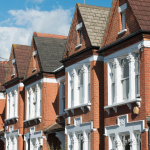The year is rattling on and we find ourselves at the 1st of September. Let’s hope the year ends quickly and we can put it behind us. A year quite unlike any other and one we never need to have again. However, the reminders will be with us for some time, not least in the economy that is now in recession. The Government has floated a number of ideas over the past week or so for raising taxes; it is clear that taxes will have to rise at some point to fund the various schemes introduced over the past six months (furlough, bounce back loans, Eat Out to Help Out, etc.). I suspect that it may be some time before the Government feels confident enough to raise taxes – too soon may be an economic and political disaster.
One tax that has been considered is Capital Gains Tax on the sale of your own home (known in tax terms as the Principal Private Residence). At the moment there is no limit to the “profit” you can make on the house you live in and you pay no tax at all. This has certainly created debate on social media over the past few days, with the usual vitriolic comments. The cynic is me suspects that many comments come from those that have never owned a house and are made out of a jealousy of the perceived “rich” people. Of course, those who own a house don’t really want to be in the firing line for paying more tax.
I am against such a tax (and no I don’t plan on moving house any time soon) as I think it will be a disaster for the property market, which is flourishing post lockdown, having reopened at the end of June. I do have my reasons.
Many of the keyboard warriors have not grasped that there is already CGT payable on second homes (investments, holiday homes) and commercial property, so it is not all property sales that are currently tax free, but it is, of course, the bulk of the market.
The first problem for me is identifying the profit that is made. Take a young couple who purchased a house for £150,000. They are now selling it for £200,000, some years later. Have they made a profit of £50,000? Well, probably not. Some of that increase will be due to inflation, and in our area we have certainly seen house values grow in recent years, but some will be due to work done by the owners to improve and maintain their house. Let’s say they put in a new kitchen, perhaps a new boiler and double glazing – they could easily have spent £25,000 (half of the gain) on the house. That is money spent from taxed income and there will have been VAT on much of the expenditure. CGT will therefore be a third tax, unless there is some mechanism for relief. We mustn’t forget that they will have paid stamp duty on their purchase and will have incurred many costs on both the purchase and sale.
There is an argument that this tax will cool the market but consider that if the price of the house sale was £195,000 (not £200,000), the tax – on a straightforward basis of 20% of gain – will be £9,000 not £10,000. So the couple in question are £5,000 worse off on the sale price but their reduction in tax is only £1,000 – this doesn’t encourage prices to fall.
Besides the detail of any scheme, which at this stage is non-existent as it’s merely an idea, there are larger problems for the market. The idea seems to assume that most people are trading up in houses and therefore have lost of spare cash. This is simply not true. Take, for example, people moving for work or to be nearer family; they may not be paying more for their new house – just a straight swap value for value. The need to pay out CGT may be a bar to moving.
We also know that moving house is generally good for the economy (despite it being apparently very stressful and on a par with divorce – imagine doing both together). Those moving incur the usual costs (solicitors, surveyors, estate agents, removals firms) but most then go on to spend money on improvements. Who hasn’t moved into a house and immediately started to put their mark on it – the very basics being new curtains, carpets, furniture right up to new windows and significant overhauls? Slowing the market down (and crucially removing cash) will reduce this expenditure with a knock-on effect for the local economy.
Coming back to the reasons people move, it’s not all about upgrading. Sadly, many houses are sold as a result of divorce, to pay care bills, illness and to settle debts. In all of these cases the imposition of CGT will be uncomfortable. Although we have a mature property market in the UK, with evidence of growth in value, a home is a home and not really intended to be an investment. The fact that it is, though, seems to work well for the economy. If you sell personal goods at a profit you pay no tax, so why be taxed on selling your family home.
I know there will be those arguing strongly against my view, and I await to hear what points they have to support such a tax. I very much hope that this a bit of kite flying by the Government before they wheel out their real plans.
Graham Bowcock
Chartered Surveyor
Managing Director






